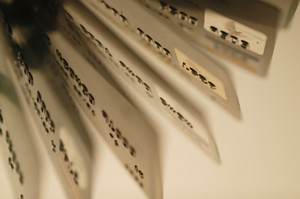
Knowing your credit score is one of the most basic fundamental of credit repair. Knowing what affects your credit score is even more important. More important than that is knowing how to proceed to improve your credit score.
Post resource: Know your credit score, and take steps to raise the number by Personal Money Store
It is free to get your credit score
Thanks to financial reform, doing something about your credit score is easier than ever. Free credit report services are all over the internet. Now these credit reports have to also consist of your credit score. Paying for that was extra. But part of the recently passed financial reform bill makes sure that you can get a free credit report that contains your credit score once per year.
Low credit score?
A lot of people don’t know how their credit score is affected by themselves. For example, as outlined by Wallet Pop, many people assume if they pay their bills on time, their credit score is good. The truth is, when your credit cards are maxed out, your score is lower than it should be. Seeing borrowing to the limit shows risky behavior. When improving credit score, your first priority is tackling excess credit card debt.
Pay down credit cards first with credit repair
You have to pay off credit card debt first to raise your credit score. There are two types of debt. Installment debt is secured by collateral, like a car loan. Revolving debt involves credit card balances. Credit card can revolve forever which is not good. Since credit card balances are unsecured, credit report companies like FICO say they’re more risky than short term loans. Paying down your cars won’t do as much to raise your credit score than paying down credit card debt.
Pay off collection agencies last
Unfortunately, if you’ve been taken to collections, your credit score is already hurt. The numbers won’t change by paying the collection agency. Bankrate.com reports that by the time your debt goes to collection, your creditor has already written you off. Although paying the collection agency will end the harassment, the payment won’t erase the delinquency from your credit report. Remember that a surprise call from the collection agency can result from missed payments on everything from utility bills to library fines. The key to safeguarding your credit score is to stay away from collection in the first place.
To charge cards, say no
To keep your credit score from dropping, keep refusing that charge card every department store tries to sell you. Opening and closing credit accounts will lower your credit score. Wallet Pop explained that FICO credit bureau research has found that opening any type of credit account is automatically seen as more credit risk. If you do get that charge card and then you pay it off in full, your credit score will rebound in a few months, but it won’t rise above the level it was before you bought that new outfit.
Do not cancel any credit cards
When considering credit repair, the deck is generally stacked against you. Especially when it lowers your score to cancel credit. When you cancel a card, the line of credit it carries goes away. Your credit goes down with less credit accessible. Just zero the credit card out and put it as part of your dresser instead. New credit card rules prohibit credit card companies from canceling cards you do not use–which used to hurt your credit score–so you don’t have to worry about that anymore.
Wisely use installment loans
Getting an installment loan for credit repair can be risky, but it can work to pay back credit card debt with personal discipline. If you have a variety of maxed out credit cards, the new installment loan won’t negatively impact your credit score as much as those debts. For this strategy to lower your credit score, you are going to have to make yourself pay off the credit card debt with the installment loan, and throw the credit cards within the drawer until the installment loan is paid off.
Citations:
Wallet Pop
walletpop.com/blog/2010/07/07/good-credit-score-secrets/
Bankrate.com
bankrate.com/finance/debt/3-easy-ways-to-rebuild-your-credit.aspx
No comments:
Post a Comment